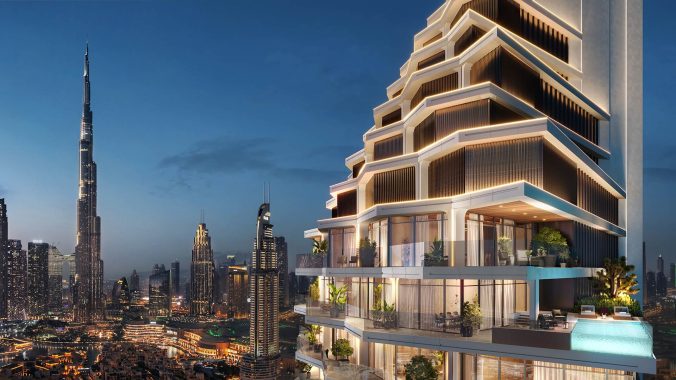Dubai’s real estate market has become synonymous with innovation, luxury, and dynamic urban development. The city’s skyline is constantly evolving, fueled by a robust real estate sector that continues to attract investors and residents alike. Several key factors contribute to the sustained growth and boom in Dubai’s real estate market.
1. Visionary Urban Planning
Dubai’s leadership has consistently demonstrated a visionary approach to urban planning. Ambitious projects such as the Palm Jumeirah and Dubai Marina showcase the city’s commitment to creating unique, sustainable, and aesthetically pleasing living spaces. These developments not only attract international attention but also set the stage for a thriving real estate market that caters to diverse preferences and lifestyles.
2. Strategic Location and Connectivity
Situated at the crossroads of Europe, Asia, and Africa, Dubai’s strategic location has made it a global business and travel hub. The city’s world-class infrastructure, including the Dubai Metro, extensive road networks, and the award-winning Dubai International Airport, enhances connectivity. This accessibility is a key factor enticing both local and international investors, making Dubai an attractive destination for property investment.
3. Economic Diversification
Dubai’s proactive efforts to diversify its economy beyond oil have contributed significantly to the real estate boom. The city has established itself as a global business and tourism hub, attracting a diverse population with varied housing needs. The demand for commercial spaces, luxury residences, and affordable housing has surged, creating a dynamic real estate landscape that caters to a broad spectrum of investors and residents.
4. Foreign Investment Initiatives
Dubai has implemented investor-friendly policies, making it easy for foreign nationals to invest in real estate. Freehold ownership in designated areas has opened the market to a global clientele. Additionally, initiatives like the Golden Visa program, offering long-term residency to property investors, have stimulated foreign interest and investment in Dubai’s real estate market.
5. Expo 2020 Dubai Effect
The hosting of Expo 2020 has acted as a catalyst for the real estate boom. The event has not only driven infrastructure development but has also increased demand for commercial and residential spaces. Anticipating the influx of visitors and businesses associated with the Expo, real estate developers have launched projects to meet the rising demand, further propelling the market forward.
6. Innovative Architectural Landmarks
Dubai’s commitment to architectural innovation is evident in its skyline. Iconic structures like the Burj Khalifa, Burj Al Arab, and the Dubai Frame not only contribute to the city’s global appeal but also act as magnets for real estate investment. These landmarks enhance the overall value of properties in their vicinity, driving demand for real estate in prime locations.
In conclusion, Dubai’s real estate boom is a multifaceted phenomenon driven by visionary leadership, strategic planning, economic diversification, investor-friendly policies, and a commitment to architectural excellence. As the city continues to evolve, the real estate market stands as a testament to Dubai’s ability to transform challenges into opportunities, solidifying its position as a global real estate hotspot.
